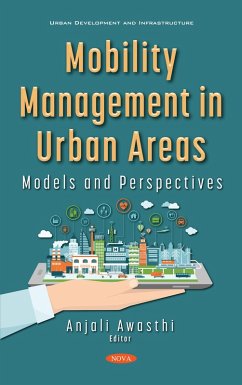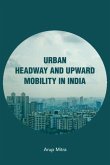Smart cities rely on information and communication technologies to enhance the quality of life of their citizens. This includes better use of transportation infrastructure, use of public transport, clean fuels, efficient utilization of parking spaces, and carsharing through the use of technologies such as internet of things, cloud computing, and blockchain while keeping in account environmental goals. Mobility management in urban areas is challenging yet critical. For the smooth transportation of goods and people, a detailed study of the city system elements from multiple perspectives is required. In this book, theoretical models, literature reviews and case studies to improve mobility in smart cities are provided. The key problems addressed are the allocation of pay and display parking machines, electric vehicle charging station location optimization, facility location planning under stochastic disruption, pedestrian safety planning using internet of things, assessing the environmental effect of airports on cities and populations, antecedents and outcomes of reverse supply chain and social sustainability practices, discrete event simulation for carsharing fleet management strategies, data mining models for road transport GHG emissions prediction, bibliometric analysis on smart city mobility, and blockchain for supply chain traceability application. Simulation, optimization, machine learning and qualitative methodologies are used. The book will serve as a very useful resource to academicians and practitioners working in the field.
Dieser Download kann aus rechtlichen Gründen nur mit Rechnungsadresse in A, B, BG, CY, CZ, D, DK, EW, E, FIN, F, GR, HR, H, IRL, I, LT, L, LR, M, NL, PL, P, R, S, SLO, SK ausgeliefert werden.









